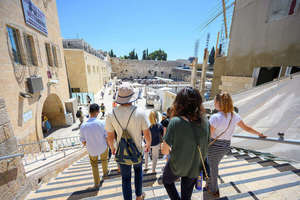Oneile Gorata Baitlotli '21 is a political science major from Botswana. She came to Notre Dame intending to major in accounting, thinking she could use the skills she acquired "for social impact and social change."
But after a year-and-a-half of business classes, Baitlotli began to question whether that path was leading her toward the career she wanted.
An interest in government policy, specifically education reform, eventually led her to major in political science in the College of Arts and Letters. That decided, she began to look for ways to internationalize her education.
She found the interdisciplinary minor in peace studies through the Kroc Institute for International Peace Studies, which offers both a supplementary major and an interdisciplinary minor in peace studies. The classes offered through the minor enhanced Baitlotli's political science coursework, allowing her to delve into the global issues and experiences that are important to her.
Here, she answers our questions about peace studies and the global opportunities her minor has led to.
How do you feel peace studies is enhancing your major in political science?
One of the things I have learned is that what I learn from peace studies does not end when I leave the class. As I continue to learn more about peace studies, it has enhanced the way I approach political science. And I now approach problems discussed in political science through the lens of peace studies.
What has been your favorite peace studies course so far and why?
My favorite peace studies course was How to Change the World [taught] by Professor David Cortright, which talked about the strategies and tactics of nonviolent social change. What drew me to this course was the emphasis on social change and the theories of nonviolent action, as well as how to participate in campaigns and movements for social change.
What area of peace studies interests you the most?
The main areas that interest me are conflict resolution and mediation. Peace studies has exposed me to different instances where conflicts were resolved through mediation by peace builders. But I have also seen how powerful mediation can be in bringing communities together and helping them heal. This makes it integral to peace work.
What do you think is unique about this program at Notre Dame?
What I found to be unique is the supportiveness of the peace studies faculty and their continued willingness to guide and advise. I genuinely appreciated this because my experience with this program has put me on track to effect change in the future.
Do you feel like conversations about what you are learning are continued outside of the classroom at Notre Dame?
100%. I have been able to have these conversations and discussions with my friends; I once had a lengthy conversation on how to define structural violence and it was interesting to see how non-peace studies students define violence in general. I also participated in the Madrasa discourses in Doha, Qatar, as well as attended the annual student peace conference since my first year.
What kind of work do you hope to do after graduation?
I plan to study public policy or global affairs in graduate school. I hope to pursue a career in education reform and I look forward to applying the knowledge I’ve gained from peace studies to my future work.
Tell us something you love about Notre Dame:
The amount of support that I receive from faculty and staff has been unmatched. As an international student I was really worried about being able to settle in and thrive at ND and thankfully the people I’ve encountered have helped make ND home.

Learn More
Explore peace studies at Notre Dame.
More Ways to Internationalize Your Education:
The Keough School of Global Affairs
International Summer Service Learning Program
Originally published by at admissions.nd.edu on August 25, 2020.